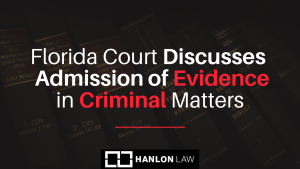A criminal record can inhibit a person’s ability to obtain housing and employment and often impacts relationships as well. As such, many people who have been convicted of crimes contemplate whether they may be able to have their records expunged. Expunging a record can allow people to live their lives as if they had never been convicted, but the process can be complicated, and it is smart for anyone seeking an expungement to consult an attorney. If you have a criminal conviction that you are interested in having expunged, it is prudent to speak to a capable Tampa criminal defense attorney to determine your options.
Eligibility for Expungement
Florida Statutes Section 943.0585 establishes the criteria a person must meet to have an adult or juvenile criminal history record expunged by a court. Specifically, section 943.0585 provides that a person may petition a court to expunge a criminal history record if no information, indictment, or charging document was filed in the subject case, or if any of the aforementioned were filed, the charges were dismissed, nolle prosequi, or if the person was acquitted or found not guilty. The person seeking expungement must not have been found guilty or adjudicated delinquent for any felony or certain misdemeanors either.
Section 943.0585 also provides that a person must apply for a certificate of eligibility for expungement from the Florida Department of Law Enforcement prior to petitioning the court. The Department will issue a certificate of eligibility if the person satisfies the criteria and submits a certified written statement from the appropriate state attorney or prosecutor confirming the criminal history record meets the statutory requirements, a certified copy of the charge, and the processing fee. A certificate is valid for 12 months after it is issued. Continue Reading ›
 Tampa Criminal Lawyer Blog
Tampa Criminal Lawyer Blog


